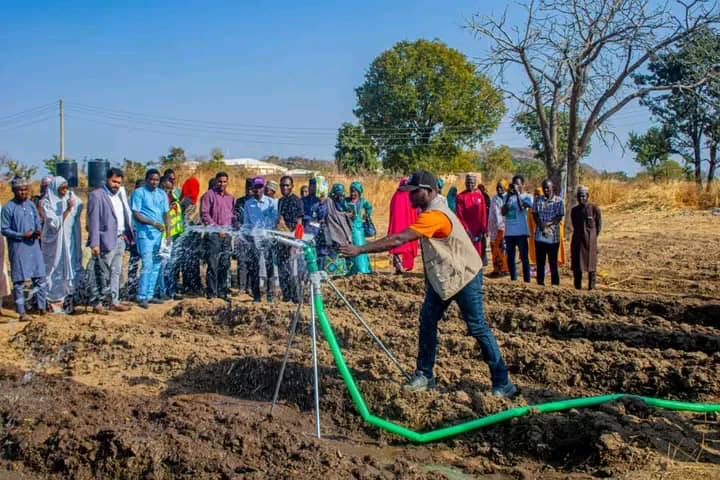By Lizzy Carr
To improve food security and combat malnutrition among women of reproductive age and children under 5, the Catalyzing Strengthened Policy Action for Healthy Diets and Resilience (CASCADE) program has trained 109 women-led farmers on best agronomic practices for producing orange-fleshed sweet potatoes and vegetables in five local government areas of Bauchi State.
During the official launch of the Bauchi State Multi-Sectoral Plan of Action for Nutrition 2024-2018 at the Government House, CASCADE’s Project Manager, Isaac Audu, highlighted the organization’s efforts in the state.
Under its nutrition-sensitive agriculture initiative, CASCADE has empowered 1,761 women by providing them with orange-fleshed sweet potato vines and 494 vegetable seeds in Bauchi, Dass, Ningi, Toro, and Jama’are local government areas.
“Additionally, 520 smallholder farmers have been trained on vegetable production, and another 683 women have received vegetable seeds, while 316 women were provided with OFSP vines for dry-season irrigation across these five LGAs,” he said.
CASCADE has also set up 10 demonstration plots and model farms across the state, trained 120 vine multipliers, and supported an essential needs assessment for the October 2024 Cadre Harmonization in Bauchi, with support from the FAO and the Federal Ministry of Agriculture.
The organization has built two greenhouses in Dass and Ningi LGAs, trained poultry mother units on integrated oilier management practices, and, as part of its gender-transformative approaches, trained gender champions in maternal, infant, and young child nutrition and social behavioral change communication.
In total, CASCADE has distributed 118 bio-based solution kits worth N65,000 each to women-led farmers and facilitated the orientation of 65 input suppliers on business linkages with leading agricultural firms.
“Despite these efforts, CASCADE remains concerned about the persistent challenge of malnutrition in Bauchi State. According to NDHS 2023-2024, the stunting rate for children under 5 is 54.2%, one of the highest in the country. Additionally, 6.9% of children suffer from severe acute malnutrition, and 68.6% of pregnant women are anemic, impacting both mothers and their children,” Isaac Ishaya said.
The multi-sectoral plan, he noted, aims to strengthen nutrition, health, education, agriculture, and the social sector to improve the health of Bauchi’s citizens.
By 2028, the plan aims to reduce childhood stunting from 54.2% to 18%, reduce child wasting from 6.9% to 10%, and reduce anemia among pregnant women from 68.6% to 40%.
It also seeks to increase exclusive breastfeeding rates from 24.6% to 65% and access to safe drinking water to 80%.
To achieve these goals, CASCADE has recommended strengthening multi-sectoral collaboration among government agencies, partners, and NGOs, increasing the budgetary allocation for nutrition programs, and ensuring sustained implementation.
Additionally, there is a need to improve training for health workers, agricultural extension workers, and social mobilizers.
Developed with support from CASCADE, Alive & Thrive, FHI360, UNICEF, and other partners, the multi-sectoral plan will harmonize nutrition financing, mobilize resources, and track progress toward achieving the SDGs by 2030.


